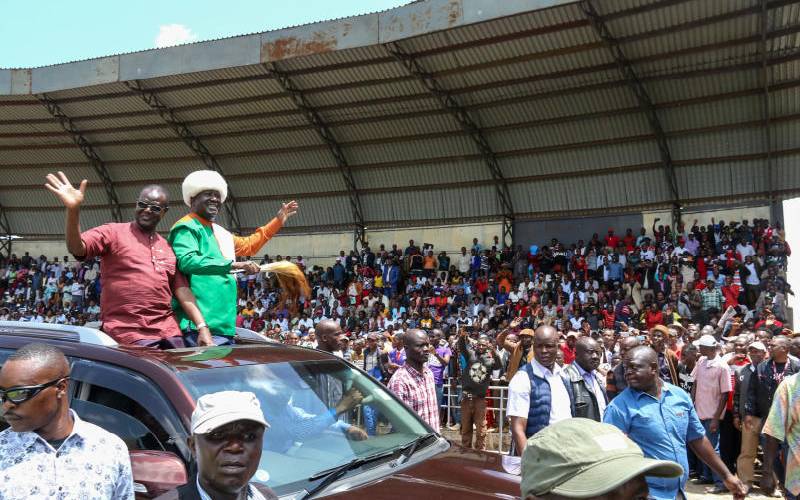×
The Standard e-Paper
Home To Bold Columnists

ODM leader Raila Odinga and Meru Governor Kiraitu Murungi at Kinoru Stadium for the BBI rally. [Emmanuel Wanson]
It is a pity the Building Bridges Initiative (BBI) has dropped to the back stage for whatever reason.The document has some useful insights and proposals that we can use to make a leap towards a better Kenya.